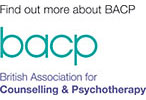
We've all watched the horrors of the Tunisian holiday-makers unfold on our TV screens in recent weeks and try to make sense of images of a gunman picking out Western tourists and killing them.
Interviews with witnesses reveal similar themes like "I haven't had time to take it all in and make sense of it and think about what has happened". And those who helped others survive often say they 'acted on adrenaline'.
I was struck by a young woman (Jess Shotton) interviewed by ITV - 'This Morning' struggling to resolve the images on TV with her own experience. She said "it feels like two separate things that I can't quite fit them together.", "It feels surreal" and she ended the interview poignantly saying it felt "like a story that someone else told me."
Jess, like many witnesses, seemed detached from her feelings and story telling. I imagine she may need help to process what she witnessed and make sense of the senseless so she can absorb it into her own experience until it eventually becomes her 'own' story.
Human reaction to trauma is to dissociate from a reality that is too painful and frightening to take in hence some of those being interviewed appear numb.
Trauma is kind of wound deriving from Greek meaning to 'pierce the skin' which Freud developed to explain how the mind can be pierced and wounded by events.
In response to a traumatic or life-threatening event (whether an act of God or man-made) the body goes into survival mode and instead of returning to normal life, the individual stays alert and aroused. This is also known as shell shock or post-traumatic stress disorder (PTSD).
Trauma stirs things up from the past causing disruption to the individual's personality although not everyone will be traumatised by events. This depends on their life history and vulnerability. So the more vulnerable a person is, the greater their chances of becoming re-traumatised with the added complexity of a fresh trauma on an old trauma.
People went to the beach that fateful day to sunbathe and swim assuming they were safe. Sadly, the reality was very different and people may need help to resolve this dilemma.
As a result of experiencing a traumatic event an individual can be left questioning their beliefs about the predictability of the world leaving their trust in tatters. They can feel overwhelmed by their emotions, which may be confusing and hard to make sense of. The essence of trauma is so overwhelming that it impedes the individual's ability to think clearly.
Those affected may experience insomnia, mood swings, upsetting memories, nightmares or flashbacks. People may feel emotionally detached from what has happened and find themselves re-experiencing the event over and over again and the individual becomes stuck in a living nightmare.
This situation can result in depression, low self-esteem, anger, stress, anxiety or even panic attacks. Some people may also develop addictive patterns as a way of coping.
Counselling can enable people to cope with traumatic experiences and to make sense of what has happened as well as process what they witnessed until it becomes part of their own experience. It's a bit like recreating order out of disorder and helping clients derive new meanings to the events (both past and present) so they can go about their lives again.
If you have noticed a change in a friend or family member or have suffered a trauma and find yourself getting gradually worse then you may need the help of a professional. Don't suffer in silence. Talk to someone...there is help out there. Or talk to me.

